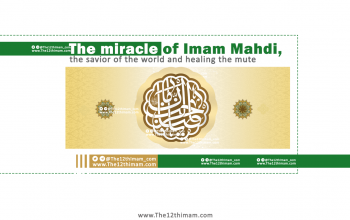One of the features of the Twelfth Imam(s.a), like other Imams, is having command of all languages and dialects of the people of the world. Indeed, the Proof of God must have full command of all languages and dialects.
Now, let’s read a hadith about this issue:
It is narrated from Abu Hamza Nasir Khadim, who said:
“I heard many times that Imam al-Askari (as) (the father of Imam Mahdi) spoke with his servants and other people in their languages, while among them were Romans, Turks, and Saqaliba (Slavs). I was surprised by that, saying he was born in Medina and did not appear among people until the martyrdom of his father, and nobody has met him, so how is this possible? I said this to myself, then Imam turned to me and said: “God has revealed His Proof from among His other creatures, and has given him the knowledge of everything; he knows the languages, linages, and events, and if it would not be, there would be seen no difference between the Proof of God and his followers.”
In another hadith, Imam Sadiq (as), describing the Prophet (sa), said: “The Prophet (sa) spoke with the people of every nation in their own languages.”
Imam Sadiq (as) once told one of his non-Arab servants:
“Speak in any language you want. I understand.”
And, he said to the other servant:
“Speak in any language you wish other than Arabic.”
And he continued: “I know all the languages.”
Imam Reza (as), counting the proofs of Imamate, stated:
“Imam should know all languages so that no language would be incomprehensible to him, and he could argue with every community in their own language.
Thus, one of the signs of the Proof of God is his command of all languages and dialects of the world, and the Twelfth Imam also has command of all languages, dialects and accents of the world.
In the following sections, we will refer to Imam’s dialogue with the people of the world in their different languages.
Reference:
Sirat al-A’imaya al-Ithna Ashar, p. 268
Basā’ir al-Darajāt, p. 246
Biḥār al-Anwār, vol. 47, p. 85 & vol. 26, p. 192
Ibid, vol. 47, p. 119



